The history of the military and whiskey intertwines in a captivating tale that spans centuries and continents. From the battlefields of the American Revolution to the trenches of World Wars, whiskey has been a steadfast companion to soldiers, sailors, and officers alike. This article delves into the enduring relationship between the military and whiskey, uncovering the profound impact of this age-old spirit on armed forces throughout history.
As soldiers faced the hardships of war and the camaraderie of brotherhood, whiskey emerged as a source of comfort, courage, and companionship. It found its way into ration packs, improvised distilleries, and officer’s clubs, becoming an integral part of military culture. The Prohibition era, too, left an indelible mark, challenging military morale and giving rise to bootlegging and black markets.
Beyond the battlefield, whiskey played a role in diplomatic relations, symbolizing trust and forging alliances. Even in the modern military landscape, whiskey continues to hold significance, connecting veterans and influencing military traditions.
Join us on this captivating journey through history as we explore the unbreakable bond between the military and whiskey, a bond that stands as a testament to the enduring spirit of both warriors and whiskey alike.
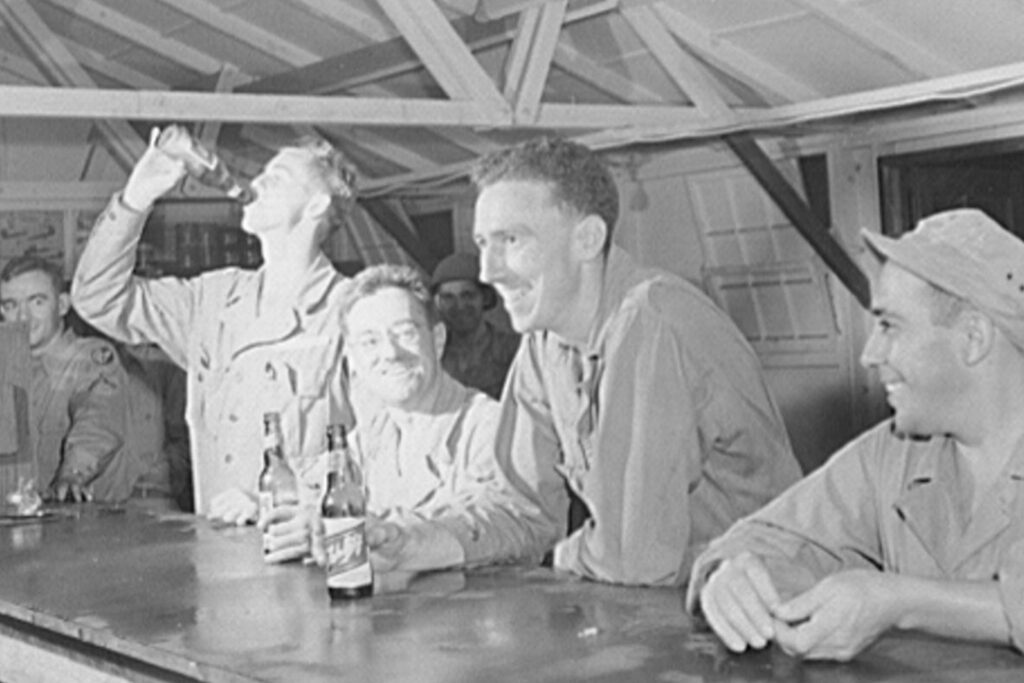
Whiskey in Early Military History
In the annals of military history, whiskey emerged as a vital companion to soldiers and sailors. During the early days, whiskey played a multifaceted role in military operations and daily life. It served as a means of payment and provision, with soldiers often receiving a ration of whiskey as part of their compensation. Additionally, whiskey was prized for its ability to boost morale and courage on the battlefield.
In times of conflict, soldiers sought solace in a sip of whiskey, finding momentary relief from the horrors of war. It became a staple in soldiers’ kits, providing warmth during cold nights and a moment of respite during tense encounters. The significance of whiskey in the military only grew with time, establishing a strong and enduring connection between the two. As history progressed, this bond would continue to shape the military’s relationship with this cherished spirit.
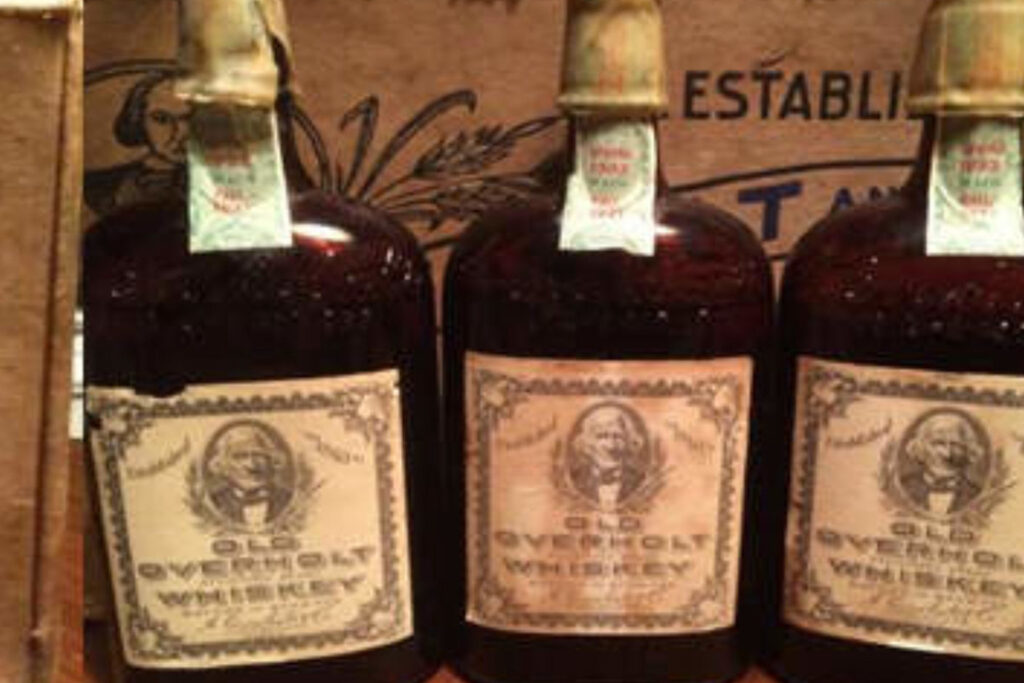
Prohibition
During the Prohibition era in the United States (1920-1933), the consumption and sale of alcoholic beverages, including whiskey, were banned. This sweeping restriction had significant effects on the military and its personnel. Prior to Prohibition, whiskey had been a standard component of soldiers’ rations, providing a source of morale and camaraderie during challenging times.
With the sudden ban on alcohol, soldiers faced a decline in morale and a sense of camaraderie. The lack of whiskey in military culture disrupted long-standing traditions, including toasts and celebrations. Additionally, prohibition led to an increase in illegal drinking establishments near military bases, fostering an environment of corruption and crime.
Recognizing the adverse impact on military discipline and morale, the U.S. government made an exception for soldiers, allowing them to consume alcohol in moderation. However, this exception was not universally enforced, leading to tensions and dissatisfaction among servicemen.
The eventual repeal of Prohibition in 1933 brought relief to the military, as whiskey could once again play a role in fostering unity and tradition among troops.
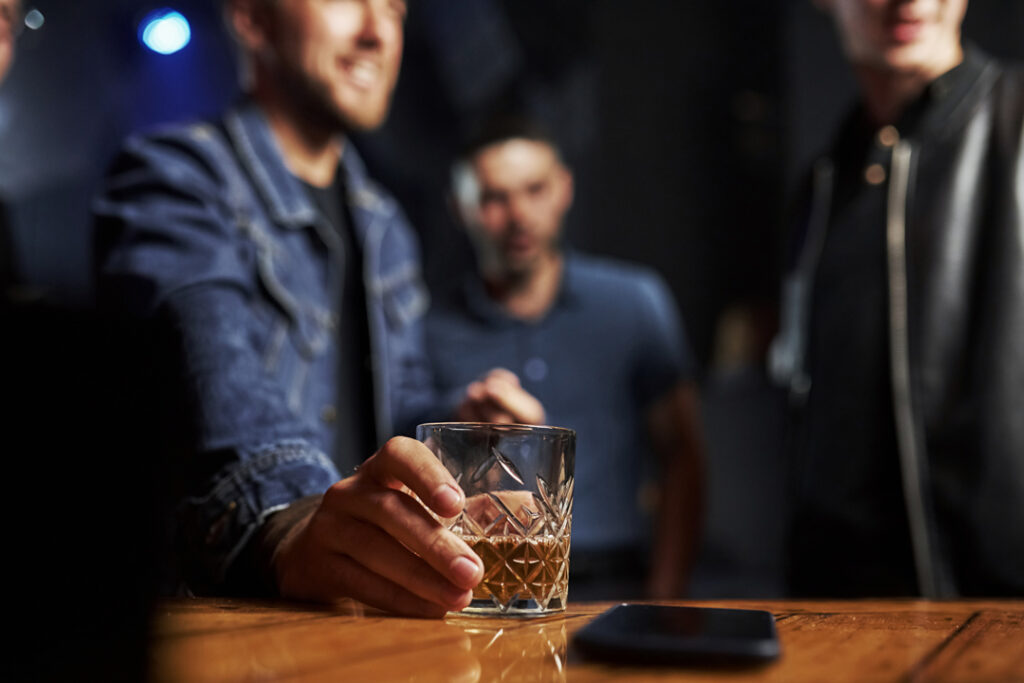
Whiskey’s Influence in Military Culture and Traditions:
Whiskey holds a significant place in military culture and traditions, playing a pivotal role in forging camaraderie among soldiers and officers alike. Toasts and whiskey ceremonies have been an integral part of military gatherings, reinforcing unity and brotherhood. From toasting to fallen comrades to celebrating victories, these rituals symbolize respect and honor for the shared experiences of service.
Military messes and officer’s clubs have long served as social hubs where whiskey flows freely, fostering a sense of community and providing a space for relaxation amid the rigors of duty. Moreover, whiskey has become entwined with various military symbols and insignia, further emphasizing its importance in the armed forces.
Whether commemorating significant milestones, forging diplomatic relations, or strengthening bonds among troops, whiskey’s influence in military culture endures as a timeless tradition, reflecting the courage and fortitude displayed by those who serve.
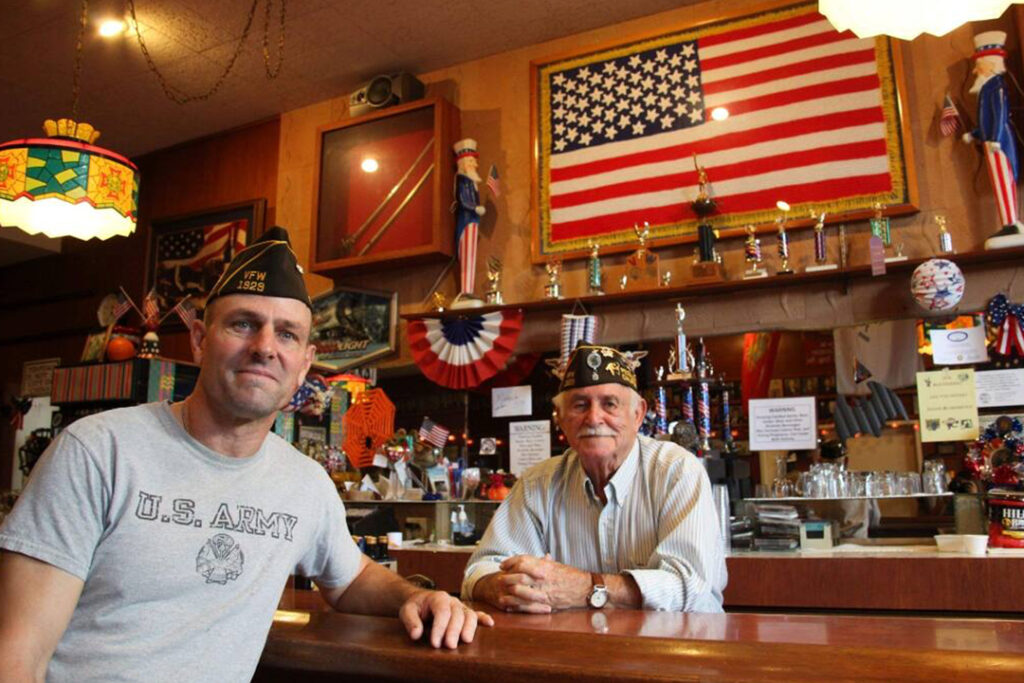
Whiskey and Military Diplomacy and Traditions
Whiskey has played a fascinating role in military diplomacy and traditions throughout history. In diplomatic exchanges between nations, whiskey has been used as a symbolic gesture of friendship and goodwill. Generals and leaders have exchanged bottles of fine whiskey as tokens of respect, forging alliances and strengthening bonds.
Military traditions involving whiskey often revolve around toasts and ceremonial events. From officers’ clubs to formal dinners, whiskey is a staple in military messes worldwide. Toasts with whiskey are a time-honored tradition to honor fallen comrades, celebrate victories, and wish for a safe return from perilous missions.
In addition to being a symbol of camaraderie, whiskey has found its place in military insignia and symbols. Some regiments proudly display whiskey barrels or bottles on their badges, signifying the spirit’s importance in their history and identity.
The enduring relationship between whiskey and military diplomacy underscores its significance beyond its alcoholic content. It serves as a potent link that transcends borders and unites warriors in shared values and traditions.
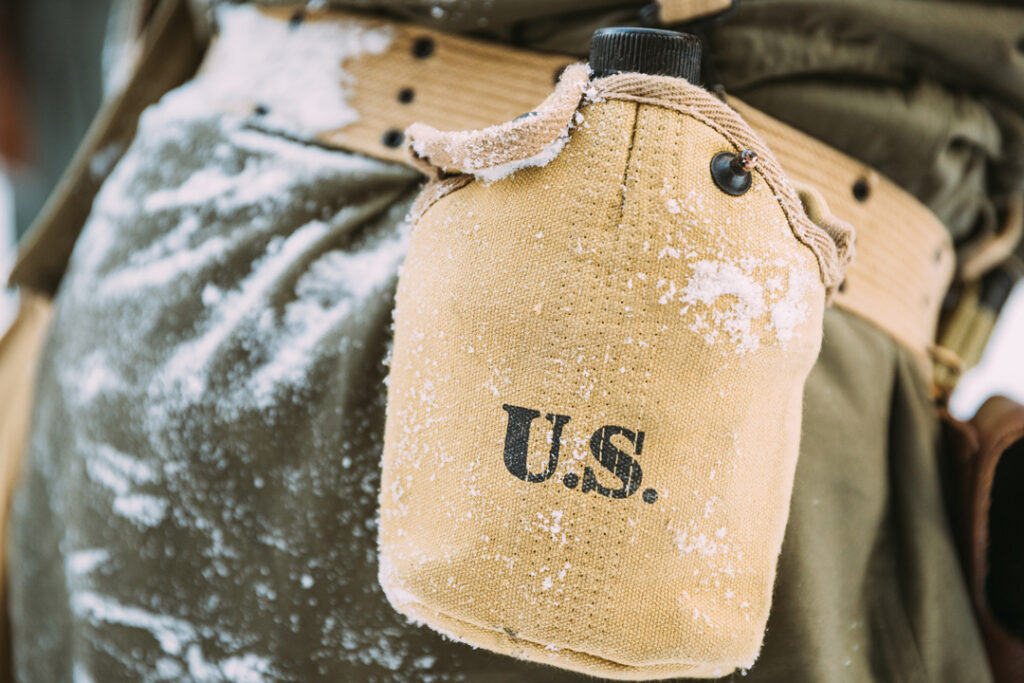
Whiskey and the Modern Military
In modern times, the relationship between the military and whiskey remains strong, albeit with a shift in focus. Whiskey has evolved from being a mere ration or morale booster to a symbol of prestige and celebration within military circles. Today, many military units and branches organize formal events where whiskey plays a central role in toasts and ceremonies.
Furthermore, the whiskey industry itself has embraced the military connection. Some distilleries create special editions or labels dedicated to military units, commemorating their service and sacrifice. Whiskey companies often collaborate with veterans’ organizations, supporting charitable causes and initiatives that assist military personnel during and after their service. Moreover, veterans have found solace and camaraderie in whiskey gatherings, using it as a platform to share experiences and build lasting connections.
In essence, whiskey continues to hold a significant place in modern military culture, bridging the gap between historical traditions and contemporary values.
Throughout history, the relationship between the military and whiskey has been intertwined, leaving an indelible mark on the annals of time. Whiskey, with its comforting warmth and camaraderie-building qualities, has played a pivotal role in the lives of soldiers, sailors, and veterans alike.
From the early days of soldier rations to toasting moments of triumph and camaraderie, whiskey has been a loyal companion to those who serve. It has symbolized courage, provided solace in times of distress, and forged bonds of brotherhood that transcend the battlefield.
The connection between whiskey and the military has witnessed challenges too, such as during Prohibition, when its absence cast a shadow on military morale. Yet, the spirit endured, returning triumphantly as a cherished part of military culture.
As we reflect on the history of the military and whiskey, it becomes evident that this unbreakable bond will continue to persist. Whether sharing tales from battles long past or raising a glass to honor the bravery of those who serve, whiskey remains a testament to the valor and unity of the military community. Its legacy endures, weaving together stories of sacrifice, courage, and the unyielding spirit of those who defend freedom.

